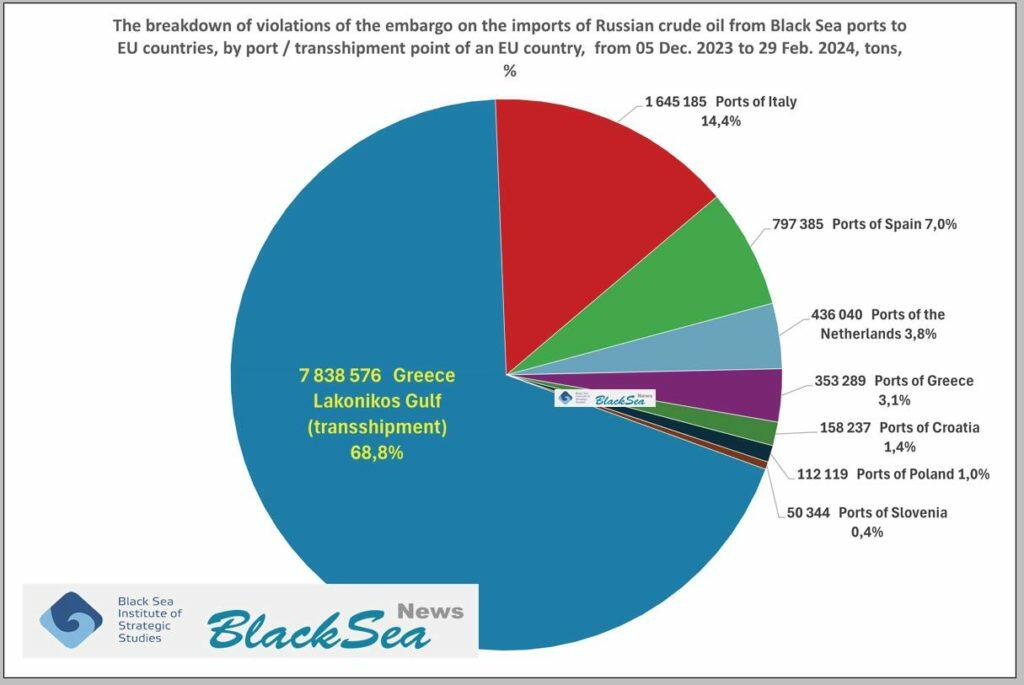Floating Russian Oil Base Shifts To New Location In Mediterranean Sea

In May, the Greek Navy began conducting war drills in the Laconian Gulf, about 110 miles southwest of Athens, to disrupt a ‘floating oil base’ used by Russian tankers for ship-to-ship transfers of crude oil and related products. Now, these tankers have migrated STS transfers to another part of the Mediterranean Sea.
Bloomberg reports tankers hauling Russia’s Urals are conducting STS transfers near the city of Nador at the eastern end of Morocco’s coast on the Mediterranean. This comes after the Greek Navy forced tankers out of the Laconian Gulf last month:
- “Reasons Unknown”: Floating Russian Oil Base Off Greece Abruptly Shifts South
- During ‘War Drill’, Greek Navy Chases Russian Tankers Out Of Oil Transfer Hotspot
Shipping data via Bloomberg shows several tankers are conducting STS transfers off Morocco.
The Rolin, a Very Large Crude Carrier, or VLCC, is receiving Urals crude from a smaller tanker Serendi off the Moroccan city, the data show. It’s is the first time that the so-called ship-to-ship transfer of the grade has taken place there.
The Serendi is an Aframax-class ship. Two others – the Ocean AMZ and Sea Fidelity – have also arrived. All three loaded about 730,000 barrels of Urals from Russia’s Baltic sea port of Primorsk last month. -BBG
BBG: Tankers with Russian Urals crude conduct ship-to-ship transfer off Morocco

STS Russian transfers mostly end up thousands of miles away in Asia. However, according to the Black Sea Group, some of it ended up at European ports because of Brussels’ poor sanction management:
“68% of the oil was brought to the Laconian Gulf in Greece for transshipment, while the rest was directly exported to the EU ports amid poor sanctions management,” researcher Bohdan Ben wrote in a note.

The West’s overall goal is to crush Russia’s energy complex. Whether that’s the Greek Navy forcing Russian STS transfers away from the Laconian Gulf, US and EU sanctions on Russian crude exports, or the Ukrainian military attacking Russian refineries with kamikaze drones, the most crucial takeaway here is Moscow’s continued resiliency.




